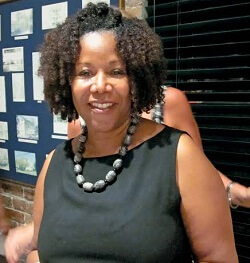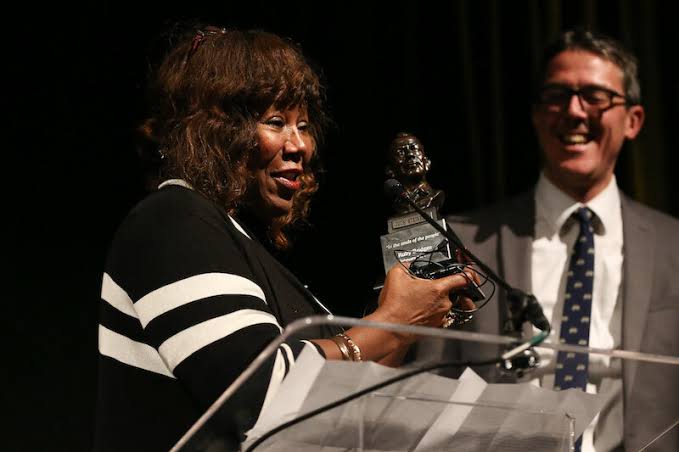Ruby Bridges
Ruby Nell Bridges Hall is born September 8, 1954, in Mississippi, US. She works for civil rights in the United States. When the New Orleans school desegregation crisis broke out on November 14, 1960, she became the first African-American child to attend the all-white William Frantz Elementary School in Louisiana. The Problem We All Live With, a Norman Rockwell painting from 1964, features her as its subject. Early LifeAbon and Lucille Bridges had five children, with Bridges being the oldest. She spent a lot of her childhood caring for her younger siblings, but she also loved jump roping, softball, and climbing trees. Bridges' family moved to New Orleans, Louisiana, when she was four years old from Tylertown, Mississippi, where she was born. Even though her father was sceptical, her parents agreed to volunteer her to take part in the integration of the New Orleans school system in 1960 when she was six years old in response to a request from the National Association for the Advancement of Colored People (NAACP). Bridges was born at the middle of the Civil Rights Movement. Bridges was born three months and twenty-two days before Brown v. Board of Education was decided. According to a court decision, it was unlawful to create separate public schools for white children, which black pupils were not allowed to attend. As a result, black students were allowed to enrol in such schools. The Brown v. Board of Education ruling was decided in 1954, but the requirement that southern states integrate within six years met with fierce opposition. Even though it was a federal decision, many white people opposed integration in schools, and state governments did not do their share to enforce the new legislation. To protect the Little Rock Nine students from the violence that resulted from the ruling, federal troops were dispatched to Little Rock, Arkansas, in 1957. The Orleans Parish School Board conducted an entrance exam for students at Bridges' school under intense federal pressure in an effort to prevent black students from attending white institutions. In 1959, Bridges went to a segregated kindergarten. Bridges was one of only six black students in New Orleans who passed the exam required to enrol in the all-white William Frantz Elementary School in the early 1960s. Two of the six made the decision to stay at their former school, Bridges went to Frantz by herself, and the McDonogh Three-three kids who were transferred to McDonogh No. 19-became famous. On the first day, Bridges attended William Frantz Elementary; four federal marshals escorted her mother and her to school. Federal marshals continued to accompany Bridges in the days that followed that year, but her mother stayed behind to look after Bridges' younger siblings. Bridges' father was initially opposed, but her mother was adamant that the change was required to "take this step ahead... for all African-American children," in addition to giving her own daughter a better education. Her mother succeeded in persuading her father to permit her to attend school. The Problem We All Live With, a picture by Norman Rockwell, honours Judge J. Skelly Wright's court order for the first day of integrated schools in New Orleans on Monday, November 14, 1960. (published in Look magazine on January 14, 1964). She showed a lot of courage. She never cried. She didn't whimper, according to former United States Deputy Marshal Charles Burks, who later recalled the incident. "Driving up, I could see the crowd, but living in New Orleans, I thought it was Mardi Gras. There was a large crowd of people outside of the school. They were throwing things and shouting, and that sort of goes on in New Orleans at Mardi Gras." She never wept. She didn't scream. She simply moved forward like a small soldier, and we are all so proud of her. Only one teacher, Barbara Henry from Boston, Massachusetts, agreed to teach Bridges, and for more than a year, Henry taught Bridges alone, "as if she were teaching a whole class," as soon as white parents pulled their children out of the school and all the other teachers refused to teach while a black child was enrolled. Bridges and her mother spent the whole first day of school in the principal's office; they were unable to enter the classroom until the second day due to the commotion in the building. However, on the second day, a white student broke the boycott and entered the school when Lloyd Anderson Foreman, a 34-year-old Methodist minister, walked his 5-year-old daughter Pam through the enraged crowd while stating, "I simply want the privilege of taking my child to school..." A few days later, other white parents started doing the same, and the protests started to fade. Bridges continued to be the sole student in her class up until the next year. One woman would hold up a black baby doll in a coffin, and another threatened to poison Bridges every morning as she headed to school; as a result, the U.S. Bridges was only permitted to consume the food that she brought from home because marshals assigned by President Eisenhower were watching out for her security. Bridges received counselling from child psychiatrist Robert Coles during her first year at Frantz. He visited her once a week at the Bridges residence, and later penned The Story of Ruby Bridges, a children's book, to introduce other kids to Bridges' life. Coles gave the Ruby Bridges Foundation the profits from the sale of that book in order to help underprivileged New Orleans schoolchildren who lack basic necessities like school materials or other items for learning. Her family paid a price for sending her to William Frantz Elementary: her father's position as a gas station worker was lost. Her grandparents, sharecroppers in Mississippi, were kicked off their farm, Abon and Lucille Bridges split up, and the family's grocery store no longer allowed them to purchase there. Bridges have remarked that other community members, both black and white, demonstrated their support in several ways. Despite the complaints, several white families sent their kids to Frantz; a neighbour gave her father a new work; and locals watched the house as guardians, babysat, and walked behind the federal marshals' car on the kids' travels to school. Bridges didn't discover that the spotless clothes she wore to school during her first few weeks at Frantz were gifts from a member of Coles' family until she was an adult. Bridges claims that her family could not have afforded the outfits, socks, and shoes seen in the pictures of her U.S. Marshals escorting her to and from the school. Adult LifeWith her husband, Malcolm Hall, and their four boys, Bridges, now known as Ruby Bridges Hall, continues to reside in New Orleans. She spent 15 years working as a travel agent after graduating from a high school that was integrated before becoming a full-time parent. She established the Ruby Bridges Foundation in 1999 to further "the values of tolerance, respect, and appreciation of all differences," and she currently serves as its chair. "Racism is a grown-up sickness, and we must stop using our children to promote it," she declares while describing the group's goal. The song "Ruby's Shoes" by Lori McKenna is about Bridges. The 1998 made-for-TV film Ruby Bridges depicted her struggles as a child at William Frantz Elementary School. Chaz Monet played the young Bridges in the film, which also starred Lela Rochon as the young Bridges' mother, Lucille "Lucy" Bridges, Michael Beach as the young Bridges' father, Abon Bridges, Penelope Ann Miller as the young Bridges' teacher Mrs. Henry, and Kevin Pollak as the young Bridges' doctor, Dr. Robert Coles. Bridges lost her home (in Eastern New Orleans) to devastating floods brought on by the levee system failing during Hurricane Katrina in 2005, along with hundreds of thousands of other residents of the wider New Orleans region. William Frantz Elementary School was severely devastated by Hurricane Katrina as well, and Bridges was a key advocate for the school's survival. Her life, along with the lives of Ryan White and Anne Frank, were all chronicled in a new permanent display that the Children's Museum of Indianapolis inaugurated in November 2007. An accurate recreation of Bridges' first-grade classroom is part of the $6 million "The Power of Children: Making a Difference" display. Pam Foreman Testroet, who had broken the boycott that resulted from Bridges' attendance at the school at the age of five, joined Bridges for a 50th anniversary reunion at William Frantz Elementary in 2010. When President Barack Obama and Bridges met at the White House on July 15, 2011, Bridges informed the president, "I believe it's fair to say that if it hadn't been for you folks, I might not be here, and we wouldn't be looking at this together." From June to October 2011, the Norman Rockwell artwork was on exhibit at the White House's West Wing, right outside the Oval Office. Awards
Bridges and Robert Coles made their first public appearance together to earn their honorary degrees from Connecticut College in September 1995. The Carter G. Woodson Book Award went to Bridges' Through My Eyes in 2000. Ruby Bridges was appointed an Honorary Deputy U.S. Marshal by Deputy Attorney General Eric Holder on August 10, 2000, marking the 40th anniversary of her entry into William Frantz Elementary School. Bridges received the Presidential Citizens Medal from President Bill Clinton on January 8, 2001. At the 12th annual Anti-Defamation League "Concert Against Hate" with the National Symphony Orchestra, performed at the Kennedy Center in Washington, DC, in November 2006, Bridges was recognised as a "Hero Against Racism." Bridges got an honorary degree from Tulane University on May 19, 2012, during the annual commencement event held at the Superdome. There are two elementary schools in Alameda, California, and Woodinville, Washington, that bear Bridges' name. Bridges is commemorated by a statue in the William Frantz Elementary School courtyard.
Next TopicSimone Biles
|
 For Videos Join Our Youtube Channel: Join Now
For Videos Join Our Youtube Channel: Join Now
Feedback
- Send your Feedback to [email protected]
Help Others, Please Share









